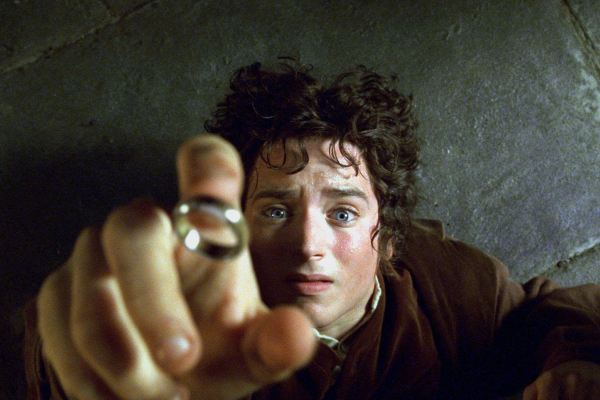“JD Vance doesn’t get to claim The Lord of the Rings.”
That was my initial reaction when I read “How The Lord of the Rings Shaped JD Vance’s Politics: ‘A lot of my conservative worldview was influenced by Tolkien’” in Politico last month.
The works of J.R.R. Tolkien — The Lord of the Rings chief among them — have been a passion of mine since elementary school. The story of how four lowly hobbits, Frodo, Sam, Merry, and Pippin, come to change the entire course of their world’s history through their decency, courage, and stubborn perseverance still resonates as powerfully for me today as it did then. There’s a “root for the underdog” theme in Tolkien that resonates with my love of working for social justice, and explains why I’ve always been drawn to biblical figures like Moses and Mary, mother of Jesus, who came from humble beginnings and accepted God’s call to play a key role in transforming the world.
Contrary to those who think of fantasy as pure “escapism” from the world around us, I know fantasy can be a powerful tool in shaping — or at least honing — real-world beliefs. Which is why, as a lifelong fan whose politics have morphed from a pragmatic liberalism modeled on Bill Clinton in my adolescence to a worldview well to the Left of Bernie Sanders in my 40s, I get an uncomfortable feeling when I see Tolkien’s work resonate with, say, vice presidential candidates who see the world very differently.
Vance is by no means the only example: Both white supremacists and their critics have noted that it is possible to interpret the central War of the Ring in The Lord of the Rings as an allegory for a clash between predominantly white Western societies and those who racists would consider darker-hued, inferior “others.” Other readers have focused on Tolkien’s status as a traditionalist British Roman Catholic who taught at Oxford to argue that Tolkien’s work shows the importance of “traditional” conservative values.
When Peter Jackson’s trilogy of film adaptations of The Lord of the Rings were released from 2001-2003, the U.S. was still reeling from 9/11. As the George W. Bush administration did its utmost to glue together patriotism and supporting the invasion of Iraq, here came a popular film in which “good and evil are comfortingly clear” and evil must be resisted with martial force. Both proponents and opponents of U.S. foreign policy saw the grand battles and lines like “there’s some good in this world, and it’s worth fighting for,” as reflective of the times. Then-Sen. Rick Santorum (R-Pa.), even used The Lord of the Rings as late as 2006 to endorse a continued U.S. presence in Iraq: “As the hobbits are going up Mount Doom, the Eye of Mordor is being drawn somewhere else...It’s being drawn to Iraq and it’s not being drawn to the U.S. You know what? I want to keep it on Iraq.”
Obviously, there are other ways to interpret Tolkien’s work: In an essay examining Middle Earth from a Marxist perspective, John Molyneux doesn’t shy away from the way The Lord of the Rings envisions “a totally idealized feudal society” rife with nostalgia for “the good old days,” which at best does not challenge the rigid racial, gender, and class hierarchies of Tolkien’s day. Yet Molyneux also points out that “a major constituent of Tolkien’s appeal, and what turned him into an international bestseller, was the ‘hippy’ counterculture in America in the 1960s” which embraced the story’s romantic critique of capitalism and industrialism. Tolkien’s anti-industrialism emerges in his clear reverence for the natural world, including his descriptions of life in the Shire and the tree-like Ents who save their beloved forest and prevent a corrupt wizard’s industrial war machine from spreading to the rest of the world. And while some see The Lord of the Rings as endorsing violence to stop evil, acclaimed Tolkien scholar Tom Shippey writes that the “core” of the books is the corrupting, addictive nature of power, including characters like Boromir who are seduced by the Ring because they desire “strength to defend ourselves, strength in a just cause.” These remarks echo uncomfortably for any of us who have seen the pursuit of power for ostensibly just causes in politics, foreign policy, and even the church lead to so much suffering and destruction.
In pointing out these readings of Tolkien from various places on the political and religious spectrum, I’m not seeking to argue which one is the “true” or “correct” interpretation of his work. While some fantasy works are explicitly allegorical (Tolkien’s friend C.S. Lewis’ The Chronicles of Narnia comes to mind, in which the lion Aslan is very deliberately meant to represent Jesus), Tolkien vehemently rejected this characterization of his own works. In his preface to the second edition of The Lord of the Rings, he wrote:
“…I cordially dislike allegory in all its manifestations, and always have done so since I grew old and wary enough to detect its presence. I much prefer history, true or feigned, with its varied applicability to the thought and experience of readers. I think that many confuse ‘applicability’ with ‘allegory’; but the one resides in the freedom of the reader, and the other in the purposed domination of the author.”
In other words, Vance does get to claim The Lord of the Rings, but so do I — however much we may recoil at each other’s political or religious interpretations.
This is why I think it’s naïve to dismiss works like The Lord of the Rings, or the Star Wars films, or the Harry Potter series as mere escapism. Fantasy offers us a lens through which to step back and see reality better by first abstracting ourselves from it. And yes, at worst, the abstractions of fantasy become license to disengage from the world around us. But fantasy can also become a common reference point, a way we can connect with those with whom we may not have much else in common.
If I were ever to talk to J.D. Vance, I suspect we wouldn’t get very far talking about our respective visions of the United States’ political future. But maybe if we talked about Tolkien, I could use that connection as a way into a more substantive conversation. I might ask him how he interprets the book’s warnings about power and environmental destruction, and I in turn would need to explain why I don’t find its rigid social hierarchies compelling. I would tell him that, as a fellow Christian, I see world salvation at the hand of the humble hobbits to be an echo of Jesus’ “upside down kingdom,” where the first shall be last and the last shall be first. Or we might talk about how Gandalf’s message to Frodo that he should value mercy: “do not be eager to deal out death in judgment, for even the very wise cannot see all ends” and why that informs how I think about not just war, but the criminal justice system and the death penalty.
The Lord of the Rings may not matter to you, but it matters both to me and some people whose vision for the future I really abhor; that’s uncomfortable, but also an opportunity. Instead of ceding that field, we can engage deeply in discourse with those who bring a very different perspective to their readings of the same texts. As Christians, we often do the same thing with the Bible: When we see people using our sacred text to uphold systems of injustice, we don’t ignore it; instead, we try to explain how we see the text differently. Will these conversations necessarily change our opponents’ minds? Maybe not. But in the work to bring about a better world, we need to use all the tools we can find. And for me, fantasy can be a metaphorical (elven?) arrow in our quiver as we make the case for changing our world from the way that it is to the way that it should be.
Got something to say about what you're reading? We value your feedback!







